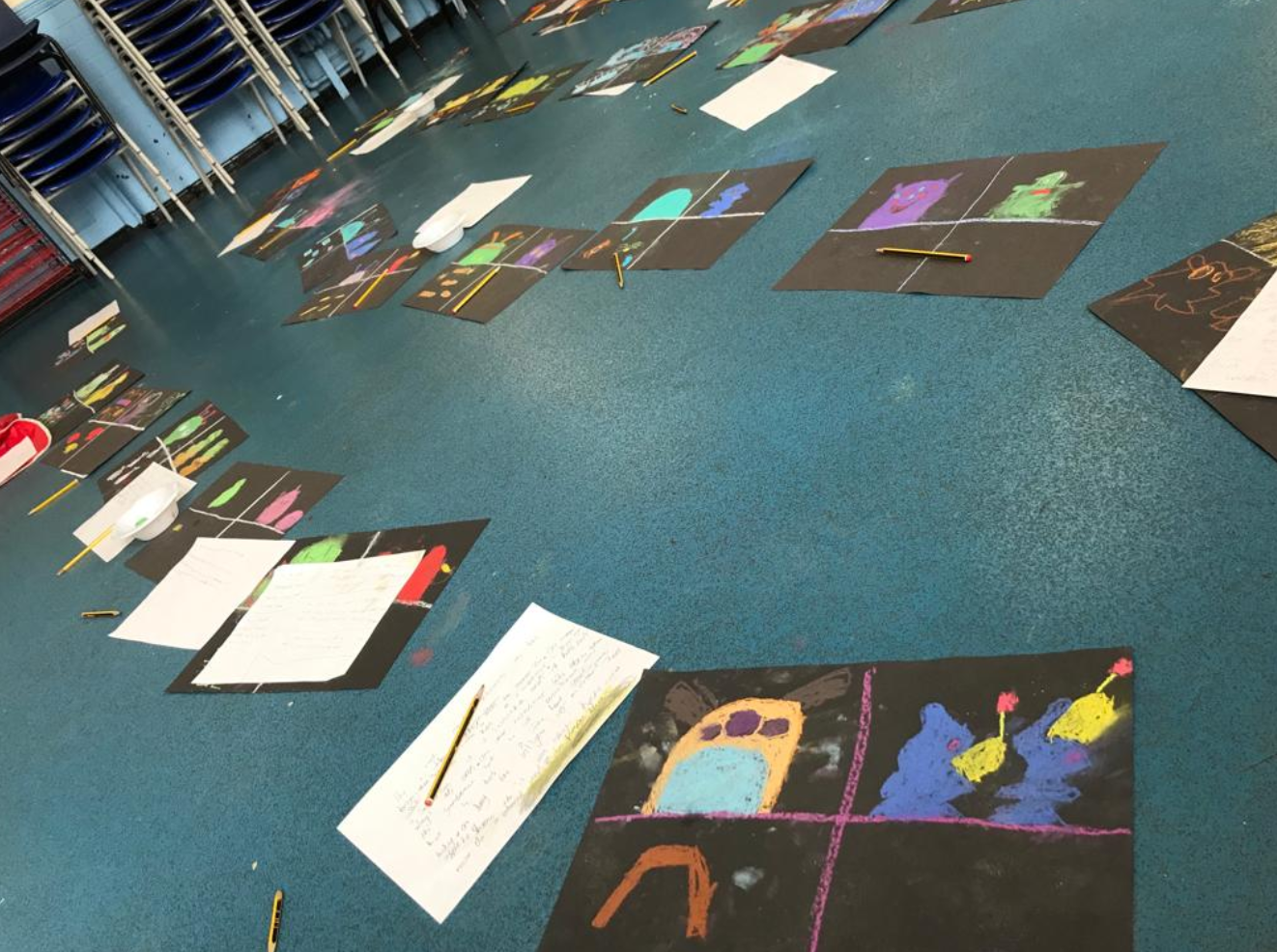Who is running this project?
The project was run by Dr Anna Tsakalaki at the University of Reading in collaboration with Joanne Skelton at Oxford Brookes University, a team of student-research assistants from the University of Reading and local artists.
What is this project about?
There are more than a million children between 5–18 years old in UK schools who speak more than 360 languages other than English as their first language (The Bell Foundation, 2023; NALDIC, 2015). In many schools, Maths terminology is introduced at the same time with the concept in English in whole-class teaching. Children with English as an Additional Language (EAL) are supported on a one-to-one basis by an EAL teacher/lead, and/or Teaching Assistants for vocabulary learning. Maths-specific vocabulary learning regularly happens indirectly through mathematical problem solving and is not necessarily explicitly taught in EAL support sessions. However, recent research shows that Maths vocabulary learning processes may be different for EAL and non-EAL Y5 pupils (Trakuphaldektrai et al. (2017). That study found that EAL pupils scored lower in word-based mathematics problems, reading comprehension and general language ability tasks. The reading comprehension test was the strongest predictor of word-based problem-solving performance for EAL, while general language ability was the strongest predictor for non-EAL pupils.
“Transferable Vocabulary” was a research collaboration between Reading University and Oxford Brookes. Based on previous research findings, we hypothesised that teaching Maths-specific vocabulary would boost performance of EAL pupils in word-based problems. We used home languages to acknowledge linguistic diversity, and creative cross-curricular activities for more fun and accessible learning.
We explored teaching of mathematical vocabulary to Year 4 and Year 5 pupils through creative learning activities. Four artists and two educational professionals co-created two workshops teaching twelve Maths-specific vocabulary using storytelling, songwriting, drawing and creative writing. The sample consisted of 250 EAL and non-EAL Y4-5 pupils in five schools and 12 teachers (including 2 EAL leads and 3 Maths leads). Quantitative and qualitative research methods were employed to explore our research goals. We tested performance in vocabulary and mathematical tasks before and after the workshops to investigate potential increase in specific vocabulary knowledge in the two groups (EAL and non-EAL). We held focus groups with pupils and teachers to collect their views on using more creative ways and incorporating EAL children’s home language to teach Maths specific vocabulary in schools. The results are promising showing an increase in vocabulary learning of both EAL and non-EAL children, and documenting children’s enjoyment in attending an alternative Maths-vocabulary teaching method which acknowledges linguistic diversity and promotes more inclusive ways of learning for all.
The project was funded by Creative Multilingualism, which is a research programme led by the University of Oxford and funded by the Arts and Humanities Research Council (AHRC) as part of the Open World Research Initiative (OWRI). Subsequent funding for follow-up projects was provided by the Centre for Literacy and Multilingualism (CeLM) and the Undergraduate Research Opportunities Programme (UROP) at the University of Reading.
Find out more
For an overview of methods and results, go to the Transferable Vocabulary website.
One of the outcomes of the Transferable Vocabulary project is the development of the Boo Zoo learning App. Two Computer Science students created a learning App for Maths-specific vocabulary for KS2 children who learn English as their Additional Language (EAL). Boo Zoo is an e-game teaching 12 Maths-specific words through definition, pronunciation and fun interactive activities featuring monsters in a playful virtual zoo environment to promote creative and active vocabulary learning.
The app was tested with 190 EAL and non-EAL Y4 pupils. The results are supportive of our hypothesis that creative engagement with the vocabulary can lead to successful and enjoyable learning of Maths-specific vocabulary. The App gave the opportunity to students to experience enjoyable learning activities outside the traditional class environment and we are looking forward to testing its effectiveness with a wider sample of primary school children.
To find out more about the Boo Zoo App, please click here.


